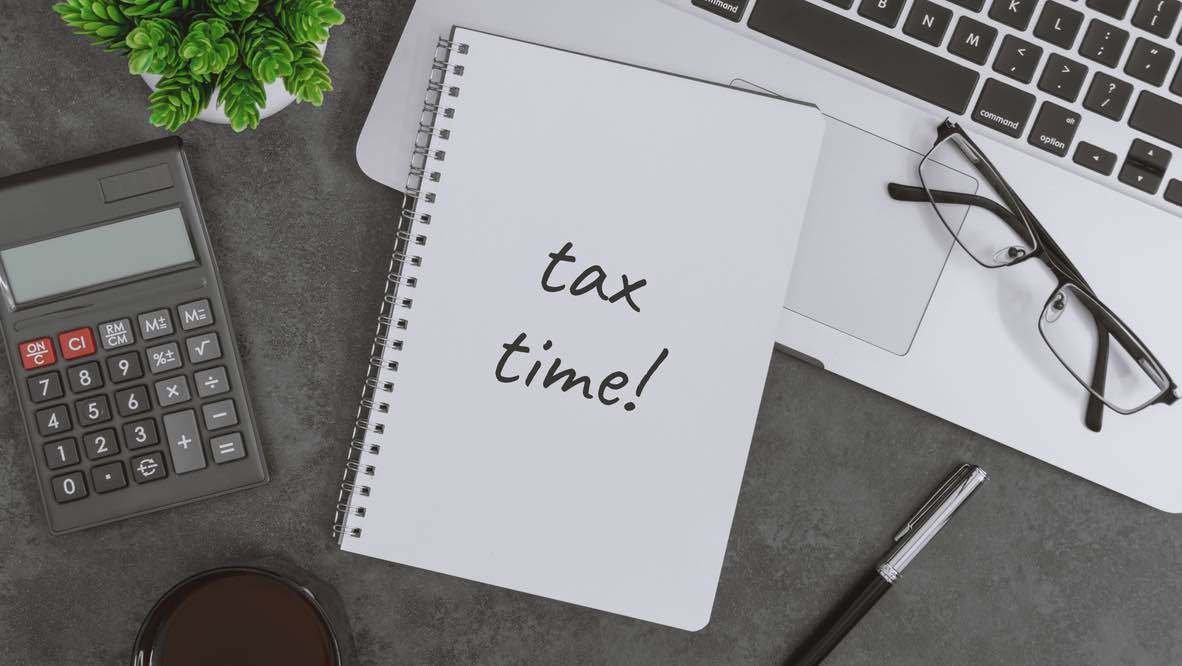
Credit Karma is Offering 100% Free Tax Software - Look Out Turbo Tax
I still vividly remember the very first time I did my own taxes. I was 18-years-old and heading off to college, working part-time to earn some extra tuition money. It was the first year that my parents couldn’t claim me as a dependent, and I was eager to make that “exciting” first step into adulthood: filing my very own tax return.
I lived in Texas, so I was lucky enough to not have to worry about filing a state tax return in addition to the federal one. I picked the easiest-sounding online software (I believe I used TaxAct back then), entered the information from my W-2s, and voila! I had a nice refund check en route. Plus, the software I used was free, so I was more than satisfied with the experience. My naïve teenage self wondered, why does everyone always complain about filing their taxes?
Just a few years later, though, I began to understand the pain that tax filing really was. My own tax situation became more complicated as I got married, started a small business, began saving for retirement, and started paying student loan interest. A few years after that, I bought a home, had children, purchased an investment property, and moved to another state–then I really started to understand the dread of tax time.
No longer could I simply use the free online software I had enjoyed in my youth. If I didn’t want to pay a CPA to file for me, I now needed to upgrade to premium versions. These often cost me $100 or more, and I still worried that I was doing something wrong.
That’s why I was thrilled to learn a couple years ago that Credit Karma–a company I already used and trusted regularly–was introducing free tax software. And in the two years since the service was introduced, it’s only gotten better and more comprehensive.
When I say free, I mean absolutely free, too! No matter your individual (keyword!) tax situation, they charge nothing to open an account or file your Federal or State tax returns, whether you’re reporting an income of $45,000 or $45,000,000.
It’s important to note that there are some limitations to Credit Karma Tax’s free filing service. For example, if you own a small business that files S-corp, C-corp, partnership, or multi-member LLC paperwork, I’m afraid you’re out of luck for filing your business taxes. Credit Karma does expect to expand in the coming years to accommodate these types of filings, but it’s still in the works.
When Did Credit Karma Become a Tax Software Company?
Back in 2016, Credit Karma purchased a North Carolina-based tax preparation company named AFJC Corporation. AFJC Corporation is a provider of online tax preparation, filing solutions, and related services for individuals, certified tax preparers, and financial institutions. Following this purchase, Credit Karma opened a new office in Charlotte, NC, entirely focused on their tax prep services.
Long before they ever jumped into the tax filing realm, though, Credit Karma was already well-known and respected in the financial sector. The company is known for being able to provide you with a free credit score and updated credit reports, without even requiring a credit card. This goes against what many other credit score providers offer: “free” access for the first X number of days; after that, your free trial period ends and you have to pay a monthly service fee.
Related: How to Get Your Credit Report for Free
Credit Karma didn’t like that system, which all of the other companies were using when they first stepped onto the scene. They decided to take “free credit reports/scores” a bit further, making them entirely free. And they don’t even require a credit card on file for this service, so you know you won’t be stuck with surprise charges.
As you can see from their new tax platform, it’s kind of their thing to take an existing pay-for service and make it 100% free. Hence the introduction of Credit Karma Tax.
How Can Credit Karma Make Tax Filing Free of Charge?
Credit Karma is likely spending millions of dollars on their new cutting-edge tax filing software, as well as the manpower required to file 100M tax returns. Then, there’s also the millions of dollars spent in advertising and millions of dollars to staff it all, so that if problems arise, they have plenty of support available. Of course, they don’t plan to take in a single penny of revenue from tax filers–so where does the money come from?
Well, every piece of information you provide to Credit Karma when filing your taxes is going to be used to offer you services in those industries. Consider this tailored soliciting, though you’re not obligated to apply for any of the products recommended to you, and there are no high-pressure sales.
For example:
- When you enter your home mortgage interest, you’ll get an email about suitable refinance options. (If you sign up for any of them, Credit Karma gets a commission.)
- When you enter your business expense report and show a lot of travel, you’ll get an email about potential travel reward credit cards. (If you are approved for any of them, Credit Karma gets a commission.)
- When you enter your self-employment health care costs, you’ll get an email about other medical insurance providers that might save you money. (If you apply for any of them, Credit Karma gets a commission.)
You get the idea. Of course, this is something they’ve already been doing when you get your free credit score through CreditKarma.com–you may have noticed that they recommend specific card products to you at the bottom of the page, based on your history and credit score.
Now, though, they are able to do it on a much grander scale, getting (what should be) 100% accurate information about the consumer and pinpointing offers that might suit their needs. Of course, all of these products are offered to you, the user, as a mere recommendation. It’s simple if you choose to ignore them; if you see one that piques your interest, though, everyone wins.
What to Keep In Mind When Filing With Credit Karma Tax
There are a few things you’ll need to note before using Credit Karma Tax to file your 2018 taxes this coming spring.
1. You Have to Sign Up for a Credit Karma Account
Even if you don’t plan to use Credit Karma for the free credit report and scoring service (which is incredible, by the way, so I highly recommend using it!), you will still need to sign up for an account before you can file your taxes. As mentioned, it’s entirely free and you don’t need to provide them with a credit card number or anything. There’s no risk of a surprise charge or recurring monthly fees down the road.
If you want to be prepared when those January W-2s start rolling in, you can set up your Credit Karma account now. Then, whenever you have all of your necessary documentation available, simply go to the Credit Karma Tax page to begin your filing.
2. You Can Easily Add Old Information
Credit Karma Tax makes it easy to add your previous tax year’s information, saving you time and energy on many aspects of your newest return. You can import 2017 tax return information automatically if you filed last year with Credit Karma, TurboTax, TaxAct, or H&R Block.
You can also take photos of your newest W-2s, and have the information automatically upload into this year’s return. This takes the pain out of copying over small lines of numbers, especially if you have more than one employer.
3. File On the Go
Credit Karma already offers a mobile app to make tracking your credit information fast and simple. Now, though, you can use that same app to make tax filing easier than ever.
Use the app to easily import W-2s, add deductions, set up a payment or direct deposit, and even live chat your questions with an agent.
4. You Don’t Have to E-File
If you would prefer to send your taxes in to Uncle Sam the old fashioned way, that’s perfectly fine. You can still use Credit Karma Tax!
Use the software to enter all of your information, track itemized deductions, and fill out necessary forms. Then, you can simply print the completed forms and mail them in instead of e-filing. Just because you use Credit Karma Tax to start your tax filing doesn’t mean you don’t still have options for how you want to file.
The clock is ticking to file your year 2018 federal and state taxes (tax day falls on April 15, 2019). By signing up for Credit Karma now, though, you can get moving on your tax filing and start tracking your credit reports and scores.
When it comes to calculating income taxes, the numbers can be painful. One number that isn’t painful, though, is the Credit Karma Tax price tag: free.


Article comments